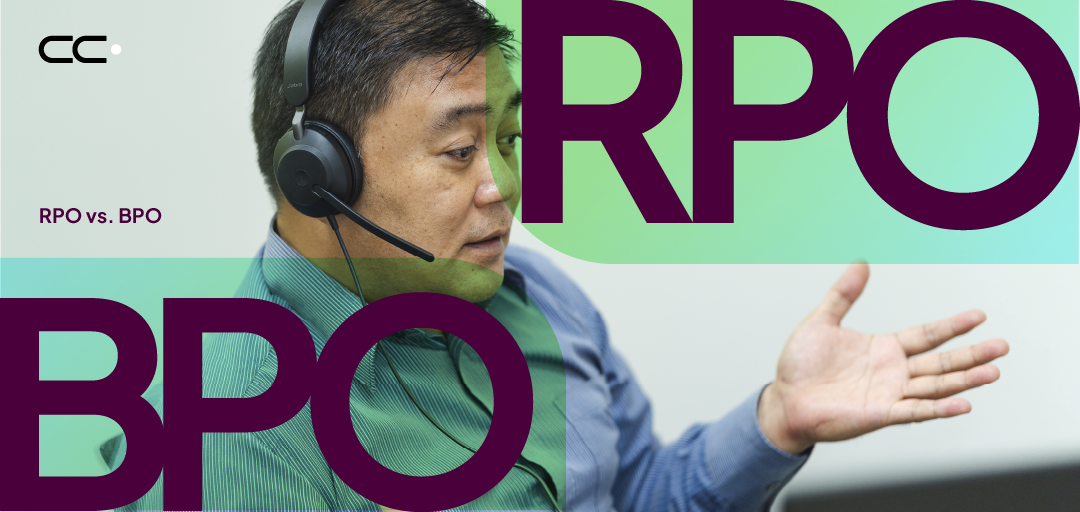What is RPO? RPO vs BPO.

Oct 01, 2024 • 2 min read
To level with up with the ongoing competition in the business landscape, organizations are constantly seeking new ways to streamline operations and enhance efficiency. Two concepts that often come up in discussions about outsourcing are Recruitment Process Outsourcing (RPO) and Business Process Outsourcing (BPO). While they might sound similar, they serve different purposes. Let’s break down what RPO is and how it compares to BPO.
What is RPO?
Recruitment Process Outsourcing (RPO) is a strategic approach to recruitment where an organization outsources all or part of its hiring processes to an external service provider. This can encompass a wide range of recruitment functions, including:
- Job profiling
- Sourcing candidates
- Screening and interviewing
- Onboarding new hires
The primary goal of RPO is to improve the efficiency and effectiveness of the recruitment process. By partnering with an RPO provider, companies can tap into specialized expertise, advanced technology, and data analytics to enhance their talent acquisition strategies.
Key Benefits of RPO
-
Access to Talent: RPO providers often have a wider network and access to a pool of qualified candidates, enabling faster and more effective hiring.
-
Cost Efficiency: By outsourcing recruitment, organizations can reduce overhead costs associated with maintaining an in-house HR team.
-
Scalability: RPO solutions can be tailored to meet fluctuating hiring needs, making them ideal for companies experiencing rapid growth or seasonal demands.
-
Focus on Core Business: By delegating recruitment tasks, organizations can focus on their core operations and strategic initiatives.
What is BPO?
Business Process Outsourcing (BPO), on the other hand, is a broader concept that involves the outsourcing of various business processes to third-party service providers. BPO can cover a range of functions, including:
- Customer service
- Finance and accounting
- Human resources
- IT services
The primary goal of BPO is to improve operational efficiency, reduce costs, and allow organizations to focus on their core competencies.
Key Benefits of BPO
-
Cost Savings: By outsourcing non-core business functions, companies can save on labor costs and overhead.
-
Expertise: BPO providers often specialize in specific functions, bringing a high level of expertise and efficiency to the processes they manage.
-
Flexibility: BPO arrangements can be scaled up or down based on business needs, allowing for greater adaptability in changing markets.
-
Risk Management: Outsourcing certain functions can help mitigate risks by distributing responsibilities across different organizations.
RPO vs. BPO: Key Differences
While RPO and BPO share some similarities, particularly in their focus on outsourcing, they differ significantly in their scope and objectives. RPO offers a specialized approach to recruitment, ensuring that companies can attract top talent efficiently. In contrast, BPO provides a broader solution for outsourcing various business functions, enabling organizations to focus on their core competencies.
Conclusion
Whether your organization needs to refine its hiring process or streamline operations, choosing the right outsourcing strategy can lead to significant improvements in efficiency and performance. By leveraging the expertise of RPO and BPO providers, companies can navigate the complexities of modern business with greater agility and success.
Still not sure which service suits your business best? Send us a message to book a specialized consultation with our team.
NEWS AND BLOG
Resources for boosting
your business

Nearshoring to Portugal: A Smarter Way to Develop Digital Products.
Discover how CC.Talent’s new Portugal nearshoring service empowers Dutch companies with cost-efficie…
Read more..

What We Look for in Remote Team Members: Skills and Mindset
At CC.Talent, we believe building high-performing remote teams starts with more than just résumés. S…
Read more..

From Canals to Connections: CC.Talent Group is Moving to Weesp!
CC.Talent Group is relocating! Discover why we're moving, what makes our new office special, and how…
Read more..
.png?width=4394&height=835&name=CC.Talent%20-%20without%20tagline%202%20(1).png)
